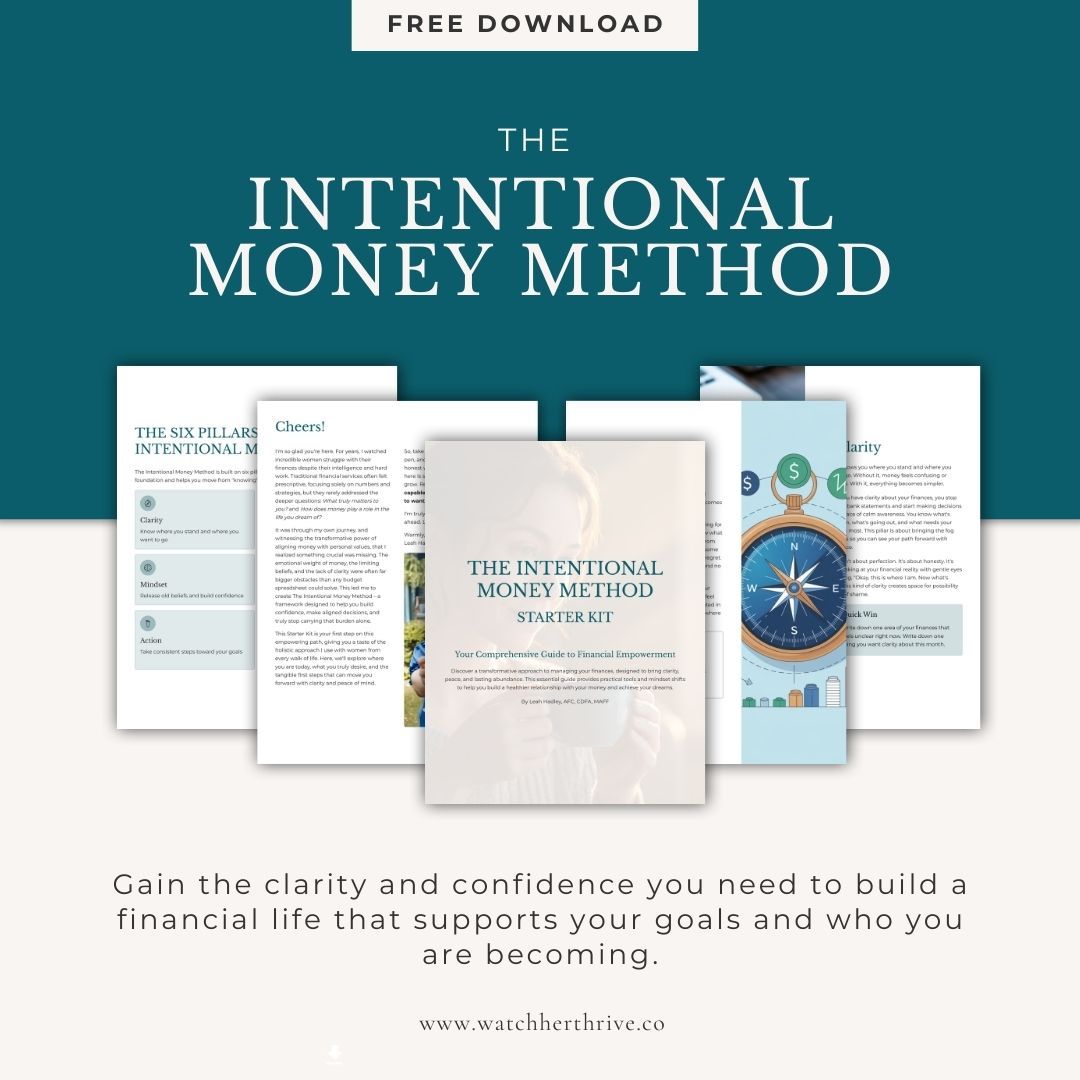Preparing for College: A Golden Opportunity for Financial Lessons and Setting Clear Expectations

The journey to college is an exciting time for both parents and their young adults. It marks the beginning of a new chapter filled with opportunities, growth, and independence. As parents, we want our children to succeed not only academically but also in managing their finances responsibly. The period leading up to the big move to college presents a unique opportunity to impart important financial lessons and set clear expectations and boundaries, even if you haven't communicated about money openly in the past. In this blog post, we will explore how to make the most of this time by teaching budgeting skills and fostering open communication to ensure a smooth transition into college life.
The Importance of Financial Preparedness
Before your young adult leaves for college, it is crucial to emphasize the importance of financial preparedness. College life introduces them to newfound independence, and managing their finances becomes a vital aspect of their personal growth. Sadly, some you...
Financial Tips for Changing Careers

When one door closes, another opens – such is the journey of changing careers. Believe me, I've been there. I have experience getting laid off from a job unexpectedly, choosing to make a planned career change, and starting a business from scratch.
As exhilarating as a fresh, professional journey may be, it's crucial to recognize and plan for the financial implications of such a change. In my experience as a financial advisor specializing in career transitions, sound financial planning can make your career change much smoother and more manageable. Today, I will share some key financial tips for changing jobs, and remember, personalized guidance is just a consultation away.
Understanding Your Financial Status
Before you leap into a new career, take stock of your current financial status. This is the foundation of any financial planning and is particularly crucial when contemplating a career change. Your income, savings, expenses, and debts form the pillars of your financial status. Wi...
Navigating New Horizons: Planning for Retirement After Divorce

Divorce often leads to changes in every aspect of your life, especially your finances. It can be particularly daunting when you have to rethink and re-plan your retirement strategy. However, planning for retirement after a divorce doesn't need to be overwhelming. With the right approach, you can turn this life-altering experience into an opportunity to create a solid, customized retirement plan that works best for your new lifestyle.
Understanding the Impact of Divorce on Retirement
Divorce often results in splitting assets, including retirement funds, which may significantly reduce the amount you had planned to live on during retirement. It can also lead to increased living expenses, as you shift from shared costs to bearing them independently. Both of these changes can profoundly affect your original retirement plan.
Moreover, divorce can have various tax implications, like potential penalties for early withdrawal from retirement accounts or changes in tax filing status. These con...
10 Timeless Financial Lessons from My Depression-Era Grandfather

Through watching my grandfather's approach to life and money, I learned truly valuable financial lessons that continue to guide me today. This wisdom was particularly meaningful given that my father's approach to finances served as a stark counterexample of what not to do.
My grandfather, who would have been 100 years old this year, grew up during the Great Depression. Those formative years shaped his entire philosophy about money, security, and what truly matters in life. The principles he lived by aren't outdated - they're more relevant than ever in our world of instant gratification and consumer debt.
10 Timeless Financial Lessons from the Greatest Generation
-
Live Below Your Means
My grandfather embodied the principle of living below one's means. This wasn't merely a saying but a lifestyle he embraced, shaping his prudent financial habits throughout his life. He prioritized long-term financial security over the allure of short-term material gain - a discipline that allo...
Building Financial Confidence: How Action Shapes Your Financial Future

I remember the range of emotions I experienced when I bought my house in 2007. I was proud to be buying my first home and worried that I was making the wrong decision. I was excited to move in and overwhelmed by all the tasks and new expenses ahead of me.
Building financial confidence is a journey, not a destination. With each financial decision, we get an opportunity to flex our confidence muscles. Yet, many of us shy away from these decisions due to fear or uncertainty. What if the pathway to building financial confidence lies in the very act of taking action?
Building Financial Confidence Through Action
Action is a tool that shapes and strengthens our confidence. The concept of "building financial confidence" isn't just about gaining knowledge; it's about putting that knowledge into practice. It's about making financial decisions - whether that's investing in a retirement fund, setting a monthly savings goal, or cutting out unnecessary expenses - and learning from the outcomes.
...Scarcity vs. Abundance Mindset: What If We've Been Asking the Wrong Question?

If you've spent any time in the personal development or financial wellness space, you've definitely heard about scarcity mindset versus abundance mindset. And the message is usually pretty clear: scarcity thinking is bad, abundance thinking is good. If you just shift your mindset to abundance, money will flow to you.
But what if this entire framework is completely missing the point?
As a financial planner who has worked with hundreds of women navigating major financial transitions, I've seen firsthand how the scarcity vs. abundance debate can actually harm people rather than help them. After years of watching clients struggle with shame around their "scarcity mindset," I'm ready to challenge this binary thinking.
The real question isn't whether you have a scarcity mindset or an abundance mindset. The real question is: Are you letting fear make your decisions?
Let me explain.

What Is Scarcity Mindset?
Scarcity mindset is the belief that there's never enough. Not enough money, n...
5 Essential Steps to Financial Independence for Women

Financial independence may seem like a lofty goal, but it's an attainable one. The key lies in breaking down the journey into manageable steps, and that's precisely what we're here to do. As women, we face unique financial challenges, but we also possess unique strengths to harness on our path to financial independence. In this blog post, we'll explore the five essential steps to financial independence for women and provide you with tools to take control of your financial future.
Step 1: Understanding Financial Independence
The first step in this journey is understanding what financial independence truly means. It's not just about having enough money to pay the bills. It's about having the financial stability to make choices that allow you to live on your terms. Financial independence is about being unchained from financial worries and empowered to make decisions that serve your best interests. Whether that means starting your own business, retiring early, or simply feeling secure in...
Budgeting for Women Over 50: Path to Financial Freedom

Do you ever feel like your money disappears without warning—or find yourself so afraid to spend that you can’t fully enjoy life?
If so, you’re not alone. Many women in midlife, especially after a major life change like divorce or retirement, struggle to find the right balance between saving and living.
The good news is that there’s a solution: creating a personalized budget plan.
A personalized budget isn’t about restriction—it’s about clarity, confidence, and control. It helps you understand your income, expenses, and priorities so your money supports the life you want to live.

Why a Budget Plan Is Your Financial Roadmap
Think of your budget as your personal roadmap to financial freedom.
It shows where your money is coming from, where it’s going, and how to use it in alignment with your goals.
Instead of feeling deprived, you’ll feel empowered to make intentional financial choices that reflect your values.
Let’s take a look at how one woman transformed her relationship with mo...
The Crucial Role of Support in Achieving Financial Independence

Navigating the journey to financial independence is never really a solitary endeavor. The complexities of wealth growth strategies and emotional hurdles that often come with becoming financially independent necessitate a supportive system. This support can come in various forms, including financial advisors, mentors, peer groups, and educational resources. In this post, we explore support's multifaceted and crucial role in pursuing financial independence.
Guidance and Financial Independence
In the world of financial independence, guidance is key. The financial landscape can feel like a maze of rules, strategies, and options. A financial advisor or mentor can provide invaluable advice for those striving for financial independence. This guidance can help you avoid costly mistakes and make more informed decisions about your financial future.
Accountability on the Path to Financial Independence
Discipline and consistency are integral to achieving financial independence. Sharing your fi...
Mastering Risk Management: A Key to Long-Term Financial Success

Last week, we surveyed the attendees of our mastermind program to determine the areas of money management where they feel strongest and weakness. Risk management was an area of weakness for many of our attendees. When managing money, risk management is a crucial factor that shouldn't be overlooked.
Risk management refers to identifying, assessing, and mitigating potential risks that could negatively impact your financial situation. Effective risk management can help you protect your wealth and increase your chances of achieving your financial goals. In this blog post, we will explore the importance of risk management in money management.
Identifying Potential Risks
The first step in risk management is identifying potential risks. This involves analyzing various factors that could negatively impact your financial situation. Some common risks include market volatility, inflation, geopolitical events, and changes in tax laws. By identifying potential risks, you can take proactive measu...



